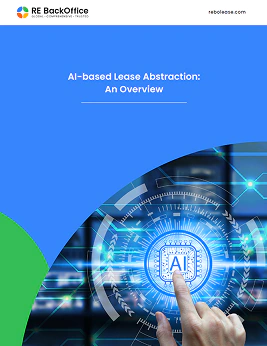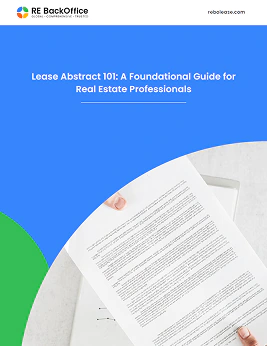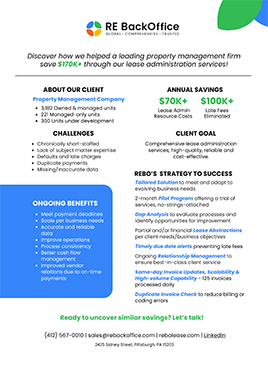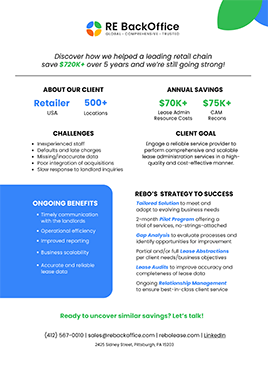
Understanding MRI: From Real Estate Intelligence to Lease Administration
1. What is MRI?
MRI Software is a comprehensive real estate and lease management platform designed primarily for landlords, property owners, and managers. It provides tools for lease administration, accounting, asset management, and tenant management—all in one integrated environment.
What are the key features of MRI?
MRI offers a wide array of features tailored to real estate professionals, including:
- Centralized lease management
- Rent roll tracking and escalations
- CAM (Common Area Maintenance) reconciliation
- Lease abstraction and document storage
- Property accounting and budgeting
- Customizable reporting and dashboards
- Integration with other financial and CRM systems
3. Who uses MRI Software?
MRI is primarily used by:
- Commercial landlords and property owners
- REITs (Real Estate Investment Trusts)
- Property management companies
- Asset managers and real estate investment firms
- Large retail and office portfolio managers
4. How does MRI support lease administration?
MRI enables users to manage the full lease lifecycle—from abstracting new leases to tracking rent escalations, lease expirations, and tenant options. It ensures accuracy in financial obligations, helps manage risk, and keeps lease data consistent across portfolios.
5. What types of properties can MRI manage?s
MRI supports a variety of property types, including:
- Office and retail spaces
- Industrial and logistics facilities
- Mixed-use properties
- Residential portfolios
- Student housing and senior living communities
6. Is MRI cloud-based or on-premise?
MRI offers both cloud-based and on-premise solutions. The cloud version provides scalability and automatic updates, while on-premise installations offer more control for organizations with specific IT requirements.
7. Does MRI include CAM reconciliation tools?
Yes. MRI includes powerful tools for CAM reconciliation, helping property owners allocate operating expenses across tenants based on lease terms. It enables efficient calculation, transparency, and dispute resolution regarding shared costs.
8. How does MRI handle lease accounting?
While MRI is not primarily built for compliance like ASC 842 or IFRS 16, it can integrate with dedicated lease accounting modules or third-party tools for financial reporting. MRI focuses more on operational lease administration for landlords.
9. What makes MRI unique?
MRI is highly modular and configurable, with open architecture that allows integration with a wide range of partner solutions. It also offers industry-specific modules for commercial, residential, and mixed-use portfolios, giving it flexibility for diverse users.
10. Is MRI suitable for tenants?
MRI is typically geared toward the landlord and property manager side of lease administration. Tenant-focused lease platforms like Visual Lease or Leasecake may be more appropriate for occupiers managing lease obligations.
Learn how RE BackOffice can support you with ongoing lease administration in MRI.
Contact us today!

